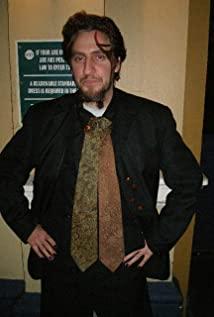If necessary, you can write a very detailed film review about this film. But this is too much trouble, I try to keep it simple.
In fact, the level of this story is very rich, and the imagery is also very long, enough to make the movie watching itself become a careful excavation activity. But if there is not enough historical and archeological common sense, especially without a personal sense of history, it cannot be fully interpreted and understood.
The Sutton Hoo Treasure
The Roman Empire has been considered a "dark age" for centuries after the collapse of British rule. Barbaric, declining, falling apart. But the discovery of Suttonhu’s ship burial changed this traditional perception, because the unearthed artifacts included Viking-style helmets, gold coins from France, silver tableware from Byzantium, and gems from India or Sri Lanka. These archaeological discoveries prove that Britain at that time was not the barbaric land once abandoned by civilization as everyone thought, but was still a close part of the entire European world and even the wider world outside the Mediterranean. The stories and characters in the epic "Beowulf" have also broken away from the literary imagination, making a legendary world that has long been forgotten more and more clearly recognizable. That’s why the archaeology professor in the film excitedly shouted: "This changes everything." Because this is not only about history and archaeology, but also about national pride and identity, especially when the war is approaching. The critical moment.
Moreover, Sutton Hu's ship burial is also known as the "British Tutankhamun". In the film, Edith reads and talks about the two plots discovered by Tutankhamun in response to this detail.
The theme of the whole film is the eternal failure of mankind in the face of time. And the sentence Basil said to the little boy "We all fail everyday. There are some things we just can't succeed at." is the core line of the film. About this, roughly speaking from the three dimensions of history, Britain and mortals:
Historical failure
This dimension has a lot to do with the historical moment in 1939 when Sutton Hu’s ship burial was discovered.
The First World War was an unprecedented catastrophe in human history. In 1938, in order to avoid the outbreak of another world war, Britain and Germany signed the "Munich Agreement." The then British Prime Minister Chamberlain waved the agreement and said that he believed this was the peace of an era. However, the war broke out in the second year. What followed was a larger and bloodier war.
It represents the end of a whole generation of people’s efforts to pursue peace. History reappears, but human reason and wisdom can do nothing about it.
Speaking of recurrence, in fact, the Sutton Hu ship burial itself is a trace of the successful invasion of Britain by the Germanic Anglo-Saxons. In the two world wars, Germany has always been Britain's most dangerous enemy. This also constitutes a historical recurrence from a larger perspective.
The torrent of history is unpredictable and seemingly unstoppable. What it brings to mankind is a deep sense of frustration.
British failure
With the start of World War II, Britain will soon find itself in a desperate situation, and an unprecedented desperate situation. Historically, the British Cabinet had really heatedly discussed the serious possibility of peace (or submission in disguise) with Germany in closed-door meetings.
At this time, what Basil said to the little boy was exactly what Churchill said, "We will fight on the beach, we will fight on the enemy’s landing point, we will fight in the fields and the streets, and we will fight in the mountains. We will never fight in the mountains." Don't surrender." This famous saying that will only be born a year later is a preview of ordinary British people. It became an excellent prophecy for the British nation to remain resilient in the face of failure.
In the failure of history, there is a great sense of frustration. But when it comes to failure in this future dimension, what lies behind it is undoubtedly a kind of calm composure and pride.
Mortal failure
But if a story is only confined to the background of the times and does not have the power to penetrate time and reach people's hearts, it is not a good enough story. The failure of mortals has this power.
In the face of time, mankind has no way out but to fail. Whether it’s Edith’s miss for his late husband, his fear of reaching the end of his life, his thinking about the meaning of life, or the boy’s anger and helplessness at the loss of his loved ones, Basil’s thirst for fame, Peggy’s hesitation on love, male No. 2’s obsession with photography is essentially the same thing. They are all different reflections of mortal failures.
In their different forms, they express our powerlessness for the passing life and our soft sigh for the short life. As mortals, we cannot resist our cold fate that will eventually return to the dust and be forgotten by the world. Perhaps, imagine that we can become an even insignificant part of the endless stream of human history, and can leave a little mark in this world through any trivial achievement or even an inconspicuous photo. It is our only The remaining comfort. Living in the moment and leaving no regrets is the only viable weak attempt.
At the end of the film, the little boy is nestling Edith, lying in the ruins of the Sutton Hu’s ship burial, looking up at the stars, and imagining that when he embarks on this 1,000-year-old ship on a journey to another world, it is also echoing another. Historical fact: In the belief of the Vikings, the ship is a vehicle for ferrying the dead to the future generations. This is precisely the origin of the ship burial.
History is repeating itself.
This is probably another proof that we are in human history. In other words, another relief.
View more about The Dig reviews











